In addition to being a well-paid and highly sought-after position, a job in software engineering also offers multiple career paths. As software engineers acquire new skills and proficiencies, these paths unlock, allowing engineers to choose the focus and direction of their careers.
You could work as a software developer, use your coding skills to pivot into the role of a technical architect, or leverage your expertise and influence with other team members to become a tech lead. Your engineering skills can even lead to a career as a project manager, or other form of technical leadership. Wherever you’d like to go, and whether you occupy an entry level position or one at the top, you need a career development plan. With a plan in place, you can learn technical skills, gain the software engineering experience, and acquire the certifications you need to pursue the software engineering role you want.
While having a say in the trajectory of your career is definitely a good thing, having so many options can make choosing the right path more difficult. To help make that decision easier, we’ve put together a guide on some of the common career paths aspiring software engineers can take, complete—with job descriptions, salary ranges, essential skills, and more—everything you need to find the software engineering career path that is right for you.


Become a Software Engineer. Land a Job or Your Money Back.
Code in the industry's most widely used programming languages. Test your knowledge through job-ready projects. Work 1:1 with an industry mentor. Land a job — or your money back.
What Does a Career in Software Engineering Look Like?
Software engineers design, develop and create software solutions and applications. A large portion of their day is dedicated to working with code: writing, testing, deploying and maintaining it. They typically work on teams with other software engineers and developers and are involved in every step of the software development life cycle (SDLC). The software engineer career ladder isn’t linear by any means, because technical knowledge and skills are so transferable, opening up dozens of job titles for you to pursue. Many software engineers work in a cross-functional team, which also gives them excellent exposure to new opportunities and fueling their career growth. The job outlook for software engineering professionals is very positive and there are numerous software engineering jobs to choose from.
The salary of an entry-level software engineer falls between $79K and $125K, well above the national average.
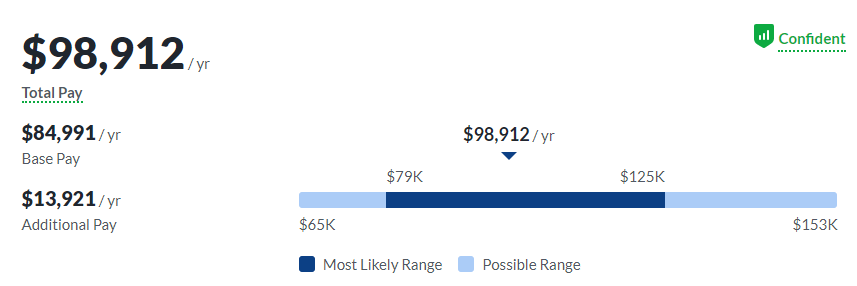
In addition to high pay, the job outlook for software engineers is particularly rosy. The BLS, for example, projects the employment of software engineers to grow as much as 25% from 2021 to 2031—that’s 20% higher than the national average for all occupations.
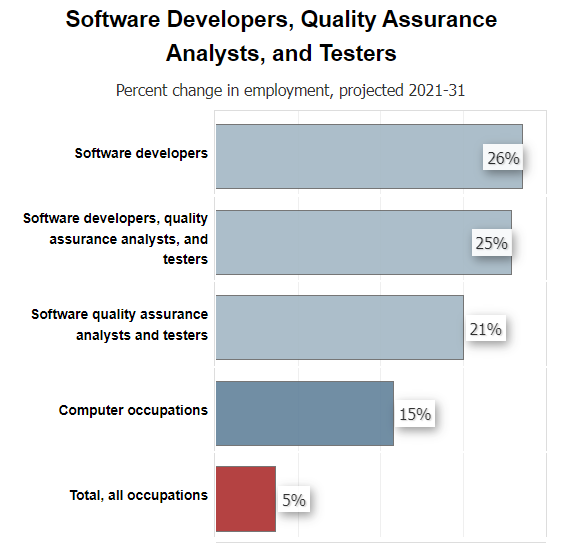
The Three Primary Career Tracks for Software Engineers
Despite the many career paths available for software engineers, there are only three underlying tracks: individual contributor, management, along with freelance/contract.
Individual Contributor
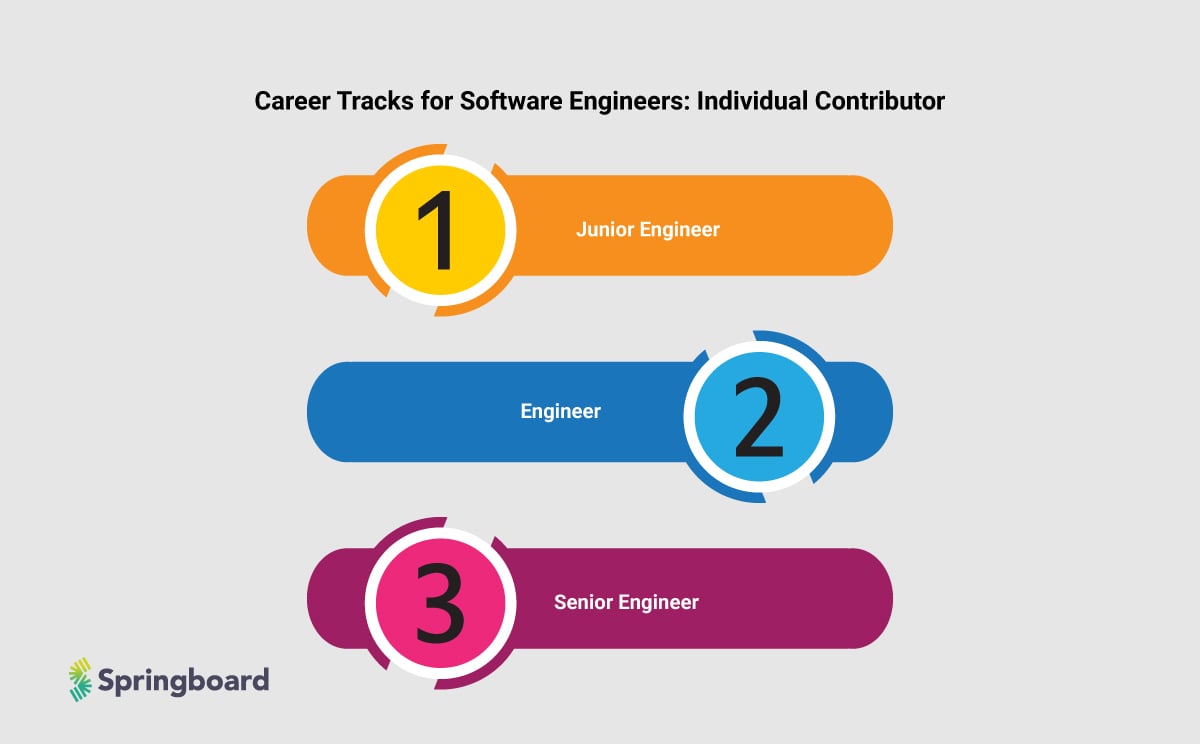
Regardless of where they end up, all software engineers start as an individual contributor (IC). The IC track is where software engineers hone and develop their technical skills. It’s also where they will develop the proficiencies that will open the doors to new career paths and opportunities.
Here are some of the common levels on the IC career track:
Junior Engineer
Junior engineers perform a wide range of entry-level operations, such as writing and maintaining code, debugging software, and helping to design software applications. Junior engineers typically start on a team and report to a more senior engineer, such as a team or manager.
In the United States, the average salary for a junior software engineer is around $100,915 per year, which includes additional pay estimates, such as bonuses and commissions.
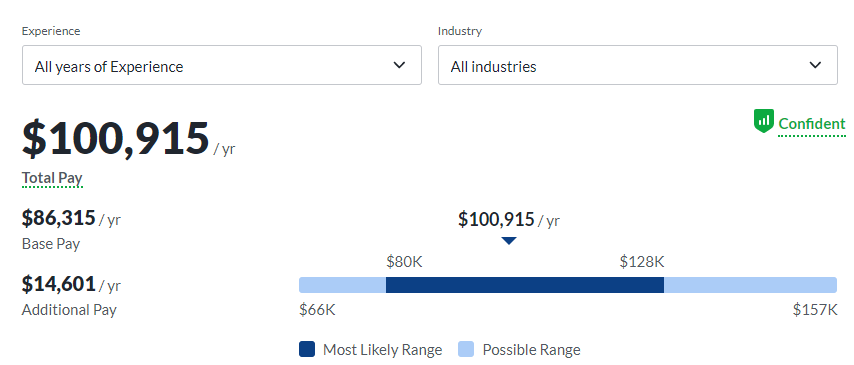
Ideally, an aspiring junior engineer holds a degree in software engineering or a related field. In lieu of a degree, some companies will consider graduates of a software engineering bootcamp and/or self-taught candidates with strong coding skills.
Engineer
Engineers are typically more proficient coders than junior engineers and are familiar with more programming languages. They also have a greater understanding of the software development process and tend to play a greater role in the various stages of the software development life cycle.
The base pay for an engineer is $105,631 per year, with a total pay estimate of $120,435 per year.
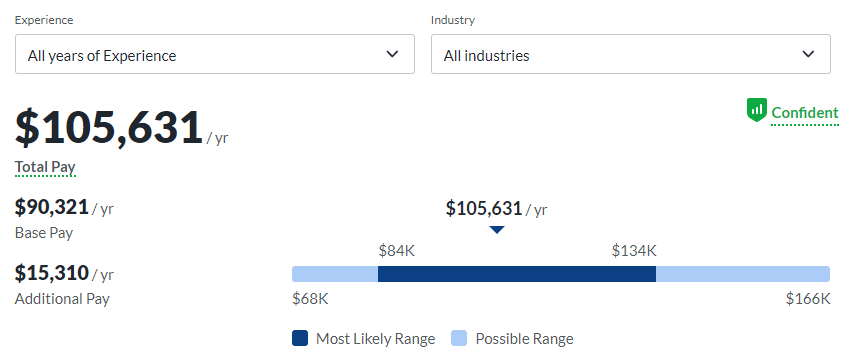
To reach this level, engineers will need to demonstrate sufficient knowledge of common coding languages, such as Python, Java, or C. They should also be comfortable working on every stage of the software development life cycle, including design and architecture, writing, testing, and deploying code, addressing bugs, and maintaining the software post-launch. They may work within a larger development team and hold different software engineering titles.
Senior Engineer
Senior engineers are involved with every step of the software development life cycle. As expert-level programmers, they use their engineering skills writing and testing high-level code, reviewing the code of others, and resolving programming issues as needed. They coordinate with team members and project stakeholders in order to evaluate the status of their project, identify potential risks, and develop solutions. Senior engineers are also responsible for mentoring junior engineers and helping them grow. They use different technical solutions, or devise technical solutions as part of a larger engineering team.
The average base pay for a senior software engineer is $144,181 per year, and it can be as high as $139,800 based on geographical location and employer.

To become a senior software engineer, you will likely need a master’s degree in software engineering or an adjacent field of study. You will also need extensive experience as a software engineer, likely more than 5 years. Fluency in multiple computer languages (i.e., Python, Java, JavaScript) is also required.
Management Track
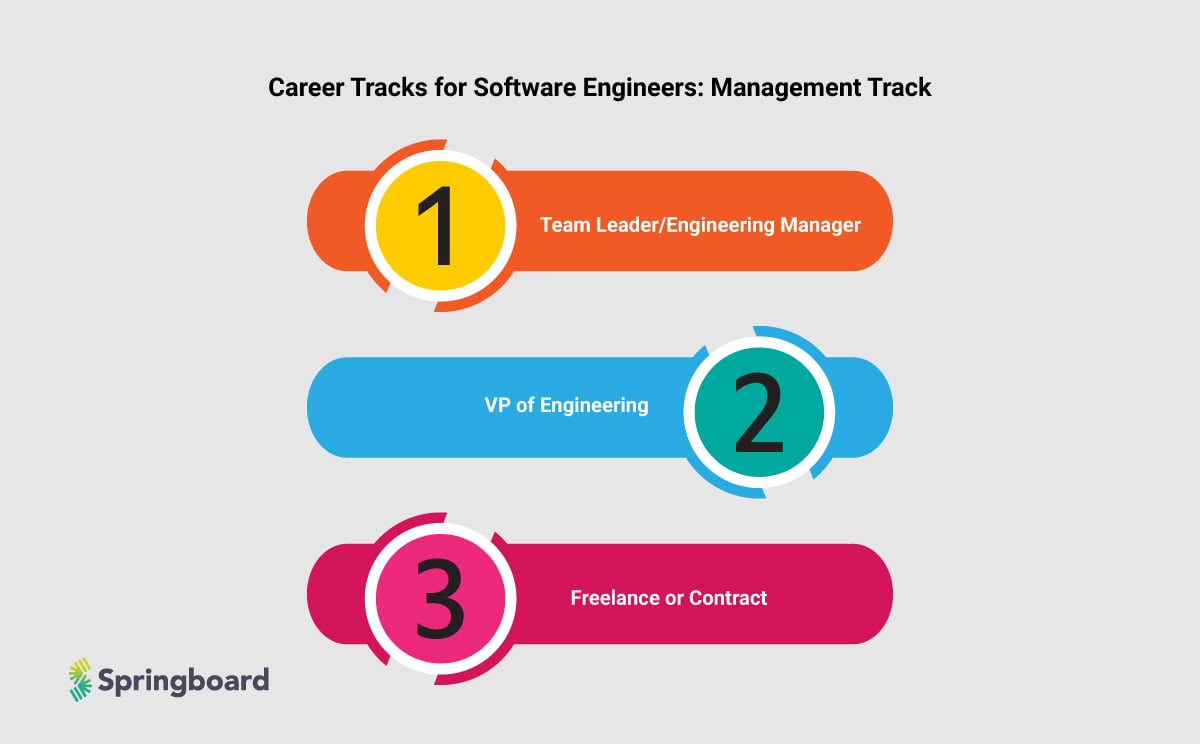
At a certain point in their careers, most software engineers will have an opportunity to jump into management. Unlike ICs, engineering managers will need to rely on their interpersonal skills more so than their technical proficiencies as they pivot from hands-on work to managing the work of others in the engineering team in the technology department.
Here are some of the typical roles available on the management track for software engineers on the management track in their software engineering career:
Team Leader/Software Engineering Managers
The first level of the management track is the role of software engineering manager. As the name implies, engineering managers oversee all aspects of their team, including job performance, project deadlines, team morale, and other conventional duties. These job titles are highly sought after by many software engineers.
The estimated base pay for an engineering manager is $221,585 per year. Total pay can go as high as $220,742 based on contributing factors, such as geographic location and additional pay.
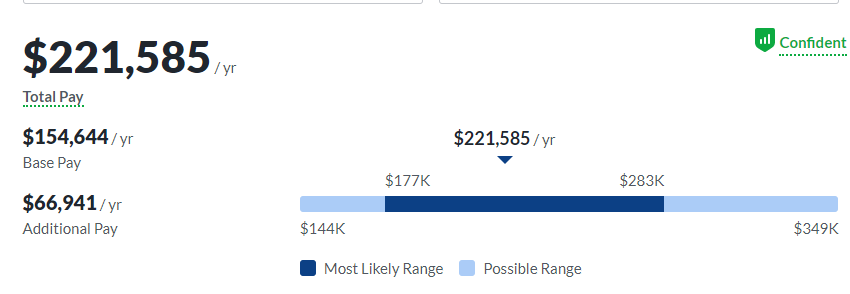
Candidates vying for the position of engineering director should have considerable experience in software development and people management. Their track record should include significant experience managing large and/or distributed teams. An engineering director should also possess superior communication skills, both written and verbal.
VP of Engineering
The VP of engineering is an executive-level position that oversees the entire engineering department. As such, their responsibilities include high-level operations and decision-making. The VP of engineering reports directly to the Chief Technology Officer (CTO) and works with both the Chief Technology Officer and other C-suite executives on critical company decisions.
The salary for a VP of engineering varies from company to company. The average estimated salary is $279,076 per year and can go as high as $267,994 per year.

The qualifications for a VP of engineering include extensive work experience in software development and people management. As the head of the engineering department, the VP of engineering should have a thorough understanding of all department processes and functions. The VP should also possess excellent communication and interpersonal skills, and be a highly effective leader.
Freelance or Contract
Instead of IC or management, software engineers can choose to go the freelance route. Freelancers often perform the same hands-on job responsibilities as individual contributors, though their career paths will look different. For instance, because they’re not permanent staff, a software developer that works as a freelancer can’t be promoted to a new position and earn higher pay. Instead, freelancers can acquire more clients. They can also bolster their programming skills to secure more complex, higher-paying contracts. It’s more work, but it’s also more freedom and flexibility than the standard technical track.
The median salary for a freelance software engineer is $104,766 per year. That amount can rise or fall significantly, depending on factors such as how much work a freelancer wishes to take on.
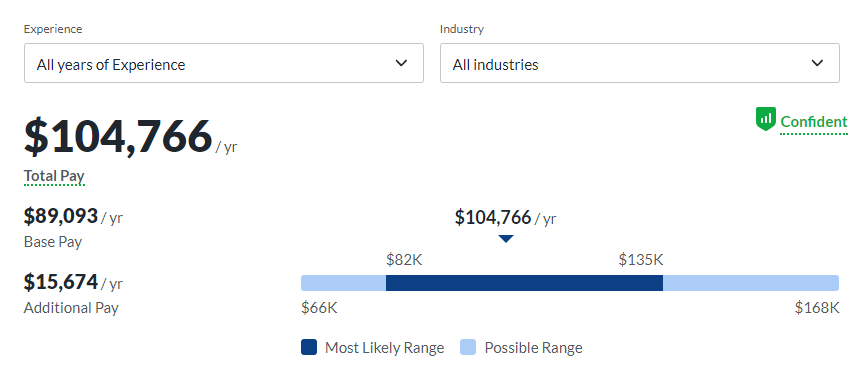
Although each new contract has a different set of requirements, freelancers who are proficient coders will always be in demand. Stay current on the common programming languages, and there will never be a shortage of contracts you can take.
Popular Software Engineering Careers
Now that you know the three career tracks for software engineers and several common career paths, let’s look at some of the most popular software engineering jobs.
Front-End Engineer
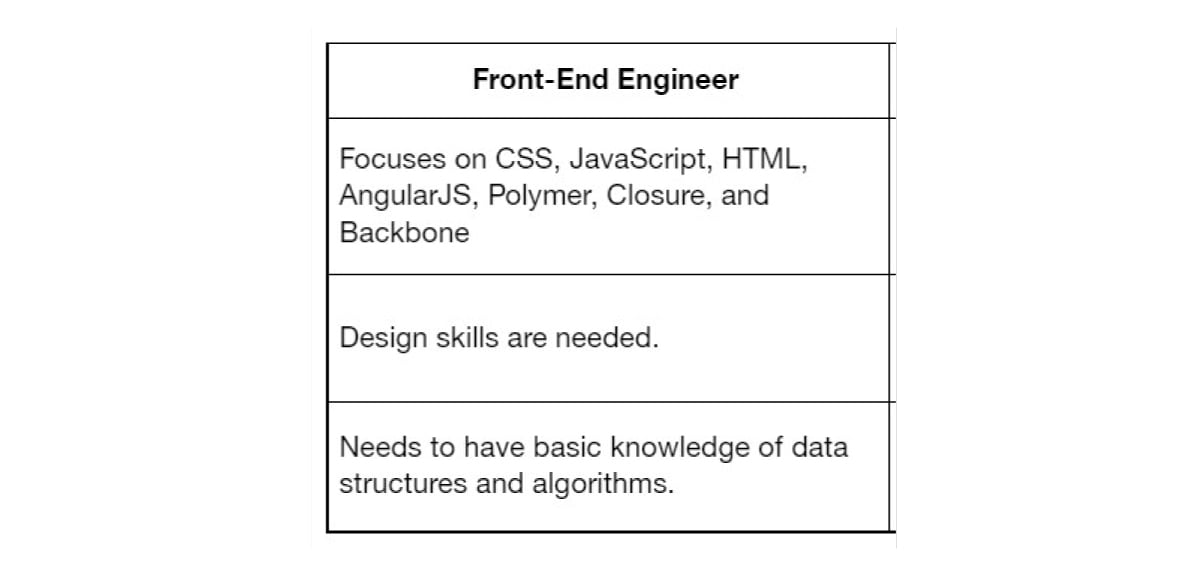
Front-end (or client-side) engineers design, develop, build, and maintain user interfaces (UI) using common programming languages such as JavaScript and CSS.
In the U.S., the average base salary for a front-end engineer is $127,038 per year, and can go as high as $123,082 per year depending on geographical location and employer.

Front-end engineers typically have a bachelor’s degree in computer science or a related field, and a strong background in software development. They should be proficient coders and have experience troubleshooting and resolving issues.
Back-End Engineer
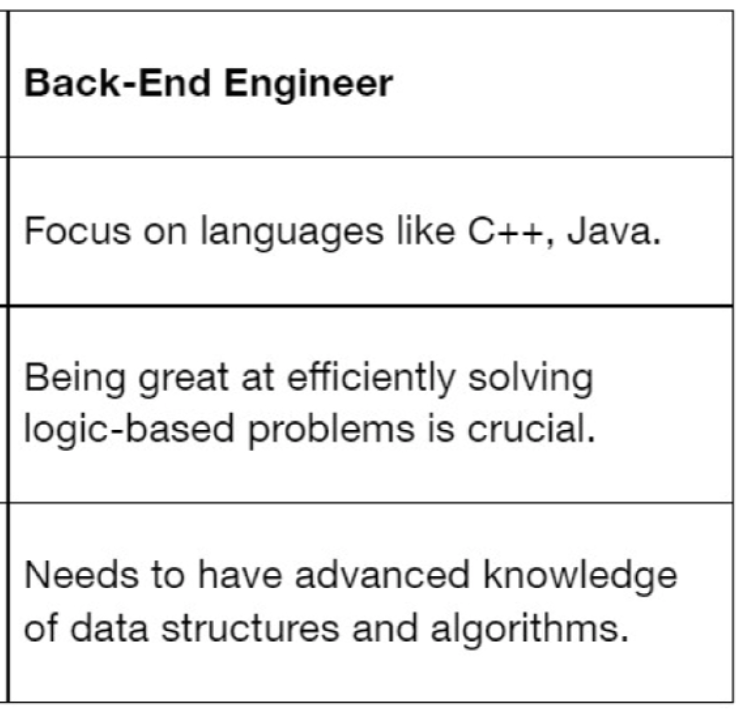
Source: Interview Kickstart
Back-end engineers write server-side scripts and application programming interfaces (APIs) that ensure the functionality of websites and applications. Daily tasks include server optimization, security, and data handling.
Related Read: 7 Best Back-End Developer Courses to Start Your Career
The average total salary for a back-end engineer is $126,594 per year, which includes additional pay and incentives, such as cash bonuses and commissions.
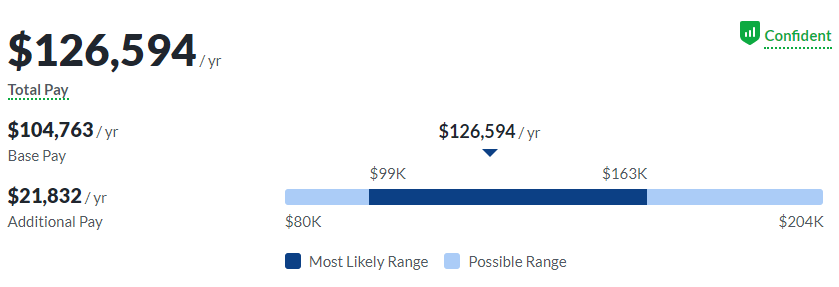
Back-end engineers typically hold a bachelor’s degree in computer science or a related field. They should be proficient back-end coders. In particular, they should have a thorough understanding of common back-end programming languages, including PHP, Python, Ruby, and Java.
Get To Know Other Software Engineering Students
Abdelkareem ElSharief
Software Engineer at Bread
Bryce Dunn
Associate Software Engineer at Egen
Elena Nurullina
Junior Web Developer at G/O Media
Full-Stack Engineer
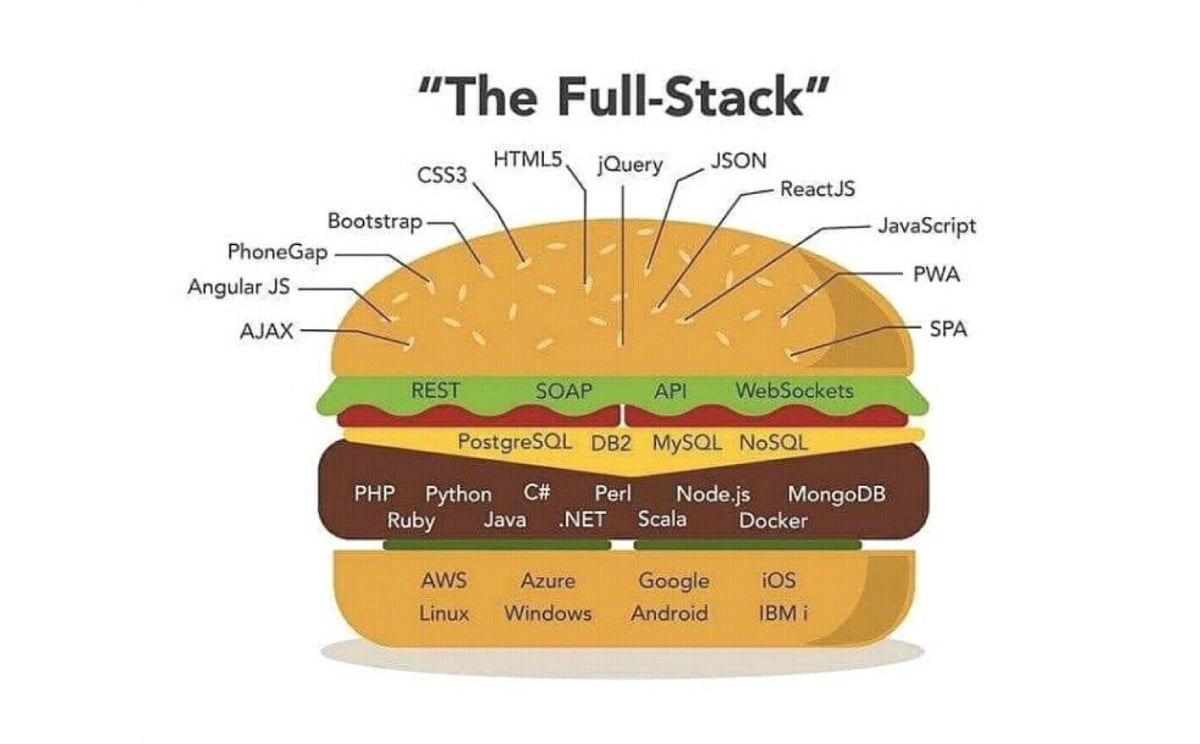
Full-stack engineers possess the technical skills of both front-end and back-end engineers. As such, they handle both client-side and server-side responsibilities.
The average salary for full-stack engineers is $120,724 per year and can go as high as $123,184 based on geographical location and employer.
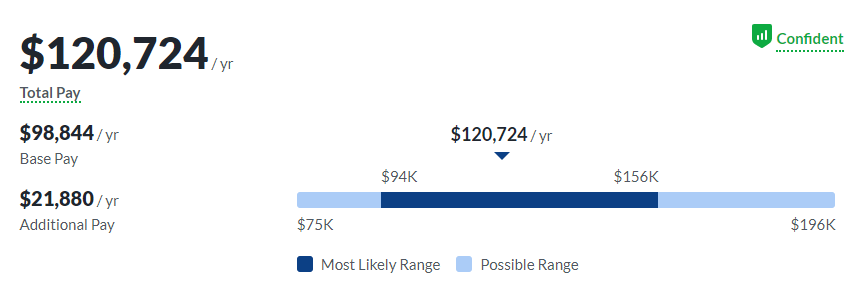
General requirements for full-stack engineers typically include either a bachelor’s or graduate’s degree in computer engineering, computer science, or a related field. As they will be performing both front-end and back-end operations, full-stack engineers should be fluent in both sets of relevant programming languages. In particular, they should have a thorough understanding of common back- and front-end programming languages.
Related Read: How To Become a Full Stack Developer
QA Engineer
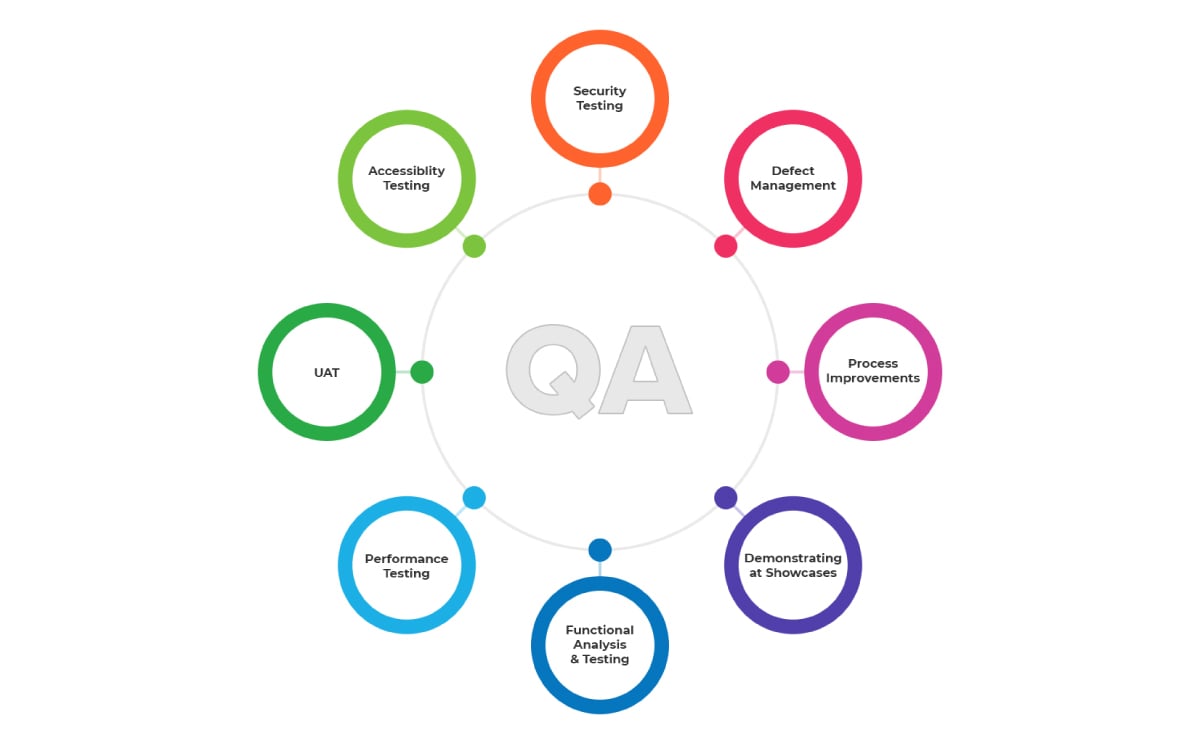
A quality assurance (QA) engineer is responsible for analyzing software and identifying any issues, bugs, or errors. They are involved in virtually every phase of the software development life cycle, ensuring the software meets all company requirements and validating the final product.
The average salary for a QA engineer is $86,107 per year, and it can be as high as $86,048 based on your geographical location and your employer.
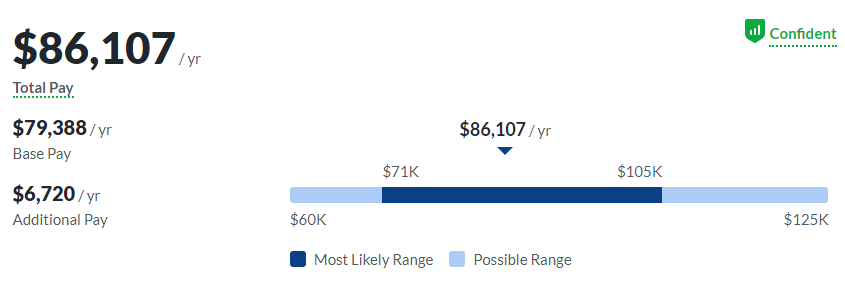
QA engineers typically hold a degree in computer science or a related field. QA engineers should also have a strong understanding of multiple programming languages, including Python, SQL, Java, C++, and XML. Lastly, QA engineers should have experience testing software during development.
Data Engineer

A data engineer’s primary responsibility is to convert raw data into information that is easily accessed and analyzed. To achieve this goal, date engineers develop software systems that can compile, manage, and transform data into actionable information. Data engineers are highly skilled.
In the U.S., the average yearly salary for data engineers is $110,653 and can go as high as $120,146 per year.

To succeed in this role, data engineers should be proficient in common programming languages, especially SQL, NoSQL, Python, Java, etc. Data engineers will also need advanced knowledge of both relational and non-relational databases. Experience working with big data tools (Hadoop, Kafka, MongoDB, etc.), as well as big data pipelines and architectures, are also generally required.
Related Read: How Do You Become a Data Engineer?
Mobile Developers
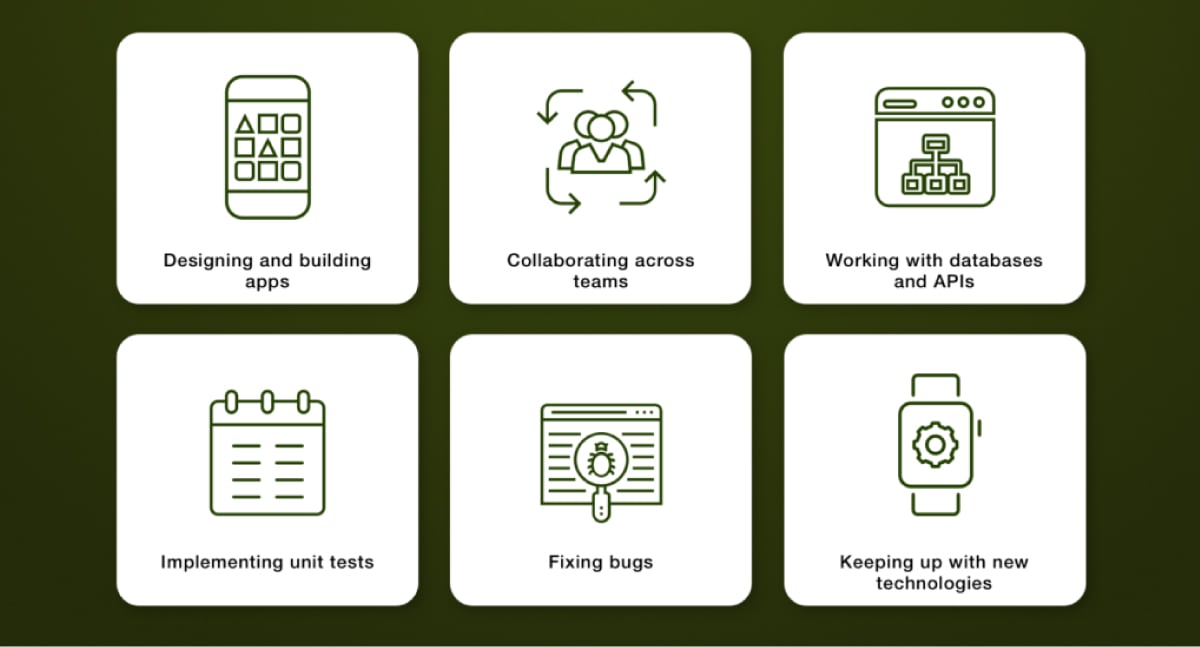
Mobile developers design and build software programs for smartphones and other mobile devices using tools and technologies such as JAVA and ReAct.
The average estimated salary for mobile developers is $98,819 per year. The estimate for total pay goes as high as $113,126, depending on additional factors such as location and additional pay.

Mobile developers typically hold a degree in an engineering field, such as computer or electrical engineering. They should have a strong knowledge of applicable programming tools, including JAVA and ReAct. Mobile developers should also be comfortable testing and debugging software.
DevOps Engineer

DevOps engineers utilize their proficiencies in programming and engineering to create systems, tools, and methodologies designed to improve technologies used within a company.
The estimated total pay for a DevOps engineer is $131,953, which includes additional pay estimates such as bonuses and other cash incentives.

A master’s degree in either computer science or software engineering is generally required to become a DevOps engineer. DevOps engineers should also have some experience working with software engineering and, if possible, civil engineering. DevOps engineers work with different teams and departments throughout their company, so strong interpersonal skills are a must.
Cloud Engineer
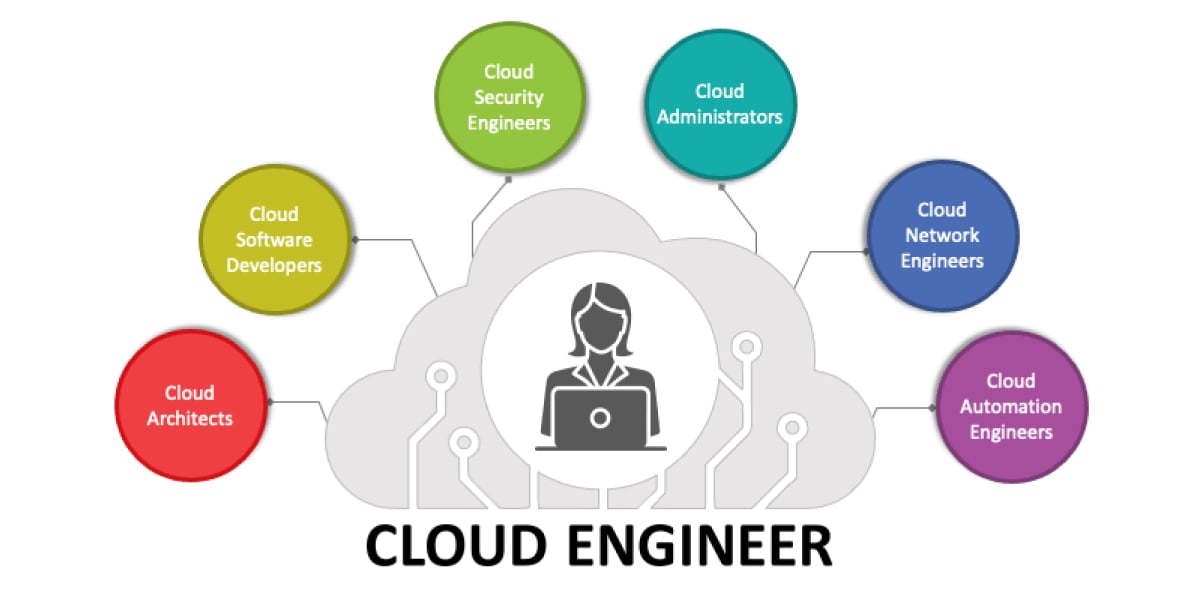
Cloud engineers are responsible for designing, migrating, managing, and maintaining an organization’s cloud-based systems. If you’re working in the U.S., the average base salary for a cloud engineer is $104,249 per year. Depending on your company’s pay bonuses and incentives, the total estimated salary can go as high as $121,649 per year.
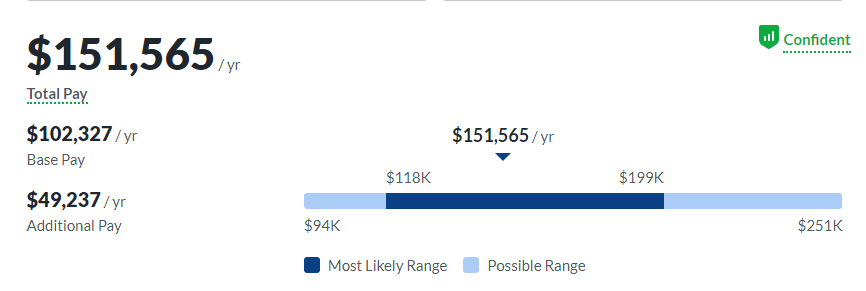
Cloud engineers typically hold a degree in computer science or an equivalent field. A strong command of various programming languages, especially Python, is also required, as well as a familiarity with SaaS processes.
Essential Skills for a Software Engineer
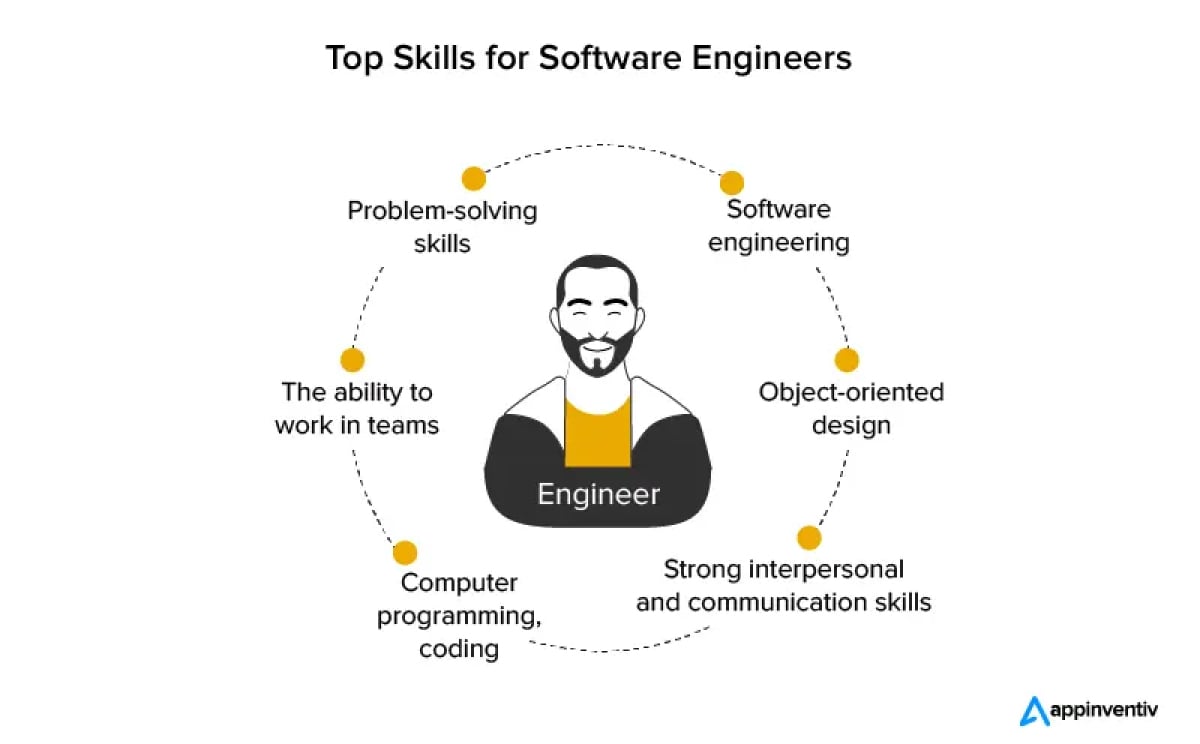
You’ll need these essential skills to work as a software engineer:
Technical Skills
To grow in your career as a software engineer, you’ll need the following technical skills:
Object-Oriented Programming
Object-oriented programming (OOP) is a programming model that uses objects, or data, as the primary source of implementation. OOP allows programmers to create code that is modular, reusable, scalable, easy to debug, and secure. Common OOP programming languages include Python, C++, and Java.
Algorithms and Data Structures
Algorithms and data structures are the heart of computer programming. Using well-defined data structures and the right algorithm to perform a specific task or solve a specific problem will ensure your code is lean and efficient, saving you time and space.
Testing and Debugging
Testing and debugging software ensure its quality and functionality before release. Exact testing processes are often company-specific, but the most effective testing methodologies are the same regardless of organization. Those methods are unit testing, integration testing, and system testing.
Soft Skills
No software engineer is an island. You’ll be interacting with others daily, so strong interpersonal and social skills are a must. Master these essential soft skills to become a more effective software engineer:
Problem Solving
Whether it’s broken code or a broken line of communication, life as a software engineer is beset by problems and challenges. The better you are at analyzing those problems and creating workable solutions, the more indispensable you’ll become.
Critical Thinking
Critical thinking goes hand-in-hand with problem-solving. Strong critical thinking skills allow you to analyze a problem from multiple vantage points and develop more than one solution.
Communication
Software engineers regularly interact with others. As such, strong communication skills are paramount. To be an effective communicator, you should speak with clarity and listen with intent.
Flexibility
Engineers who are open-minded and flexible are willing to embrace new ideas and concepts. They understand that even if a new approach fails, that doesn’t mean you can’t learn from the experience. Being flexible will help develop your critical thinking and problem-solving skills. Additionally, it will make you a better teammate, someone who’s easier to work with, and will lead to more career opportunities.
Patience
Practicing patience with yourself will help you think critically and problem-solve more effectively. Practicing patience with others will also make you a better teammate, communicator, and collaborator. Being impatient with yourself or with others will only lead to frustration, anger, and/or anxiety, which will result in careless mistakes and more frustration. Avoid the negative feedback loop by practicing patience whenever you can.
How To Become a Software Engineer
There is no absolute or guaranteed path to becoming a software engineer. However, there are certain routes you can take to improve your chances of being hired.
Earn a Degree
Many postings for careers in software engineering list a bachelor’s degree in software engineering (or a relevant field) as a requirement. The reason these degree programs are so well-regarded by hiring managers is that they cover many technical skills and proficiencies you’ll need to learn to be a software engineer
Complete a Certified Course or Bootcamp
Even without a degree in software engineering, many organizations are happy to hire candidates who have completed a certified online course or bootcamp.
Self-Taught
If earning a degree in software engineering isn’t a viable option, there are plenty of online resources that can help you become a skilled programmer. Create a portfolio that demonstrates your coding skills, and hiring managers will consider you even if you don’t have a degree.
FAQs About a Career in Software Engineering
We’ve got the answers to your most frequently asked questions.
How Do I Plan for a Career in Software Engineering?
If you’re planning on a career in software engineering, you will need to earn a bachelor’s degree in computer science or software engineering. In place of a degree, some companies will consider candidates who have completed coding bootcamps and/or are self-taught with demonstrable programming skills.
Is Being a Software Engineer Stressful?
As with any job, a career in software engineering can be challenging if you lack the necessary skills. If you don’t have strong social skills, for example, a career like software engineering that focuses heavily on teamwork and collaboration could prove stressful.
One way to mitigate workplace stress is to identify the stressor, understand how it affects you, then, if possible, work on improving the essential skills that might lessen its impact.
For example: If the collaborative nature of software engineering causes you stress, consider improving your soft skills. Strong communication skills will reduce your stress when working in a team environment.
Is It Hard To Get a Software Engineering Job?
Despite its rosy job outlook from the BLS, software engineering remains a highly competitive career. Aspiring engineers will likely need more than just a bachelor’s degree to secure a quality job offer. Consider supplementing your degree with an internship or bootcamp to elevate your resume.
Does a Software Engineer Make More Money Than a Software Developer?
In general, the average base pay for software engineers is marginally higher than the base pay for software developers. In the U.S., junior software engineers earn an estimated $89,617 in base pay, while their developer counterparts take home $77,477—roughly 13% less.
Similarly, senior software engineers typically make $139,828 in base pay. Senior software developers, on the other hand, earn an estimated $112,745 in base pay.
What Are Some Career Paths For Software Engineers?
When you become a software engineer, the sky really is the limit. Your career trajectory depends on your career goals, your skill set, salary expectations, and your willingness to learn.
Generally speaking, you’ll probably start off in an entry level role. There are a number of different tech roles you can pursue as a beginner, from building web applications to working in database design. You may only need to know (or use) one programming language.
If you aspire to reach a management level and climb the career ladder, you’ll need a lot more than technical expertise. When you are developing software, hard skills are important, but so are soft skills. Entry level engineers often work in cross-functional teams that consist of graphics engineers, web development professionals, a project manager, a QA tester, a team manager, user interface designers, and many other job titles. Use this time to build your foundational skills, including communication and management skills. Accept constructive feedback when it’s given.
Even experienced engineers need a few years before taking up a managerial position, so the next logical step in your career progressions is to work as a mid-level engineer. Take a few online courses and master new systems, new programming languages, and new technologies before applying for a managerial role. Gaining experience is key to your career progression. You’ll probably take on more within the project scope and move up a notch in the decision-making process. With more professional experience behind your belt, you can step up the career ladder.
From here, you can lead a team for the first time. Thereafter, you may even take on a CTO role in one of the many tech companies around the world, or start your own company.
Since you’re here…
Were you one of the tens of thousands of workers impacted by this year’s tech layoffs? Springboard wants to help. Our new Career Reboot Scholarship is intended to assist job seekers from tech looking to upskill, reskill and stand out in a competitive hiring environment. Get $1,000 off any Springboard bootcamp in software engineering, data analytics, UX design, cybersecurity, tech sales, and more. Visit this page for eligibility requirements and to apply.







![12 Jobs You Can Land After a Coding Bootcamp [2023 Guide]](https://www.springboard.com/blog/wp-content/uploads/2020/07/12-jobs-you-can-land-after-a-coding-bootcamp-2023-guide.jpg)

